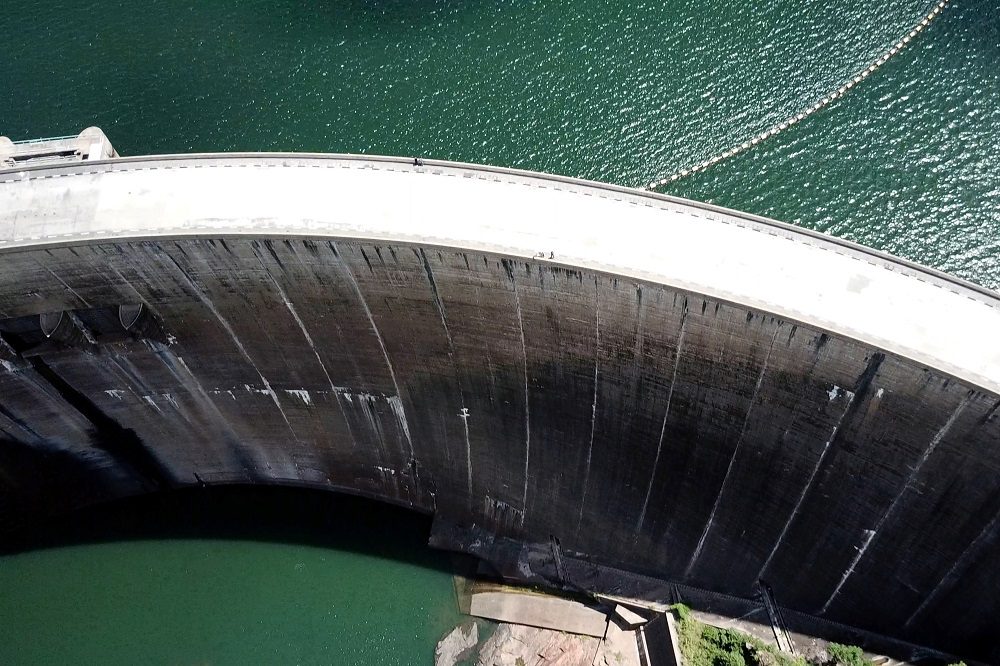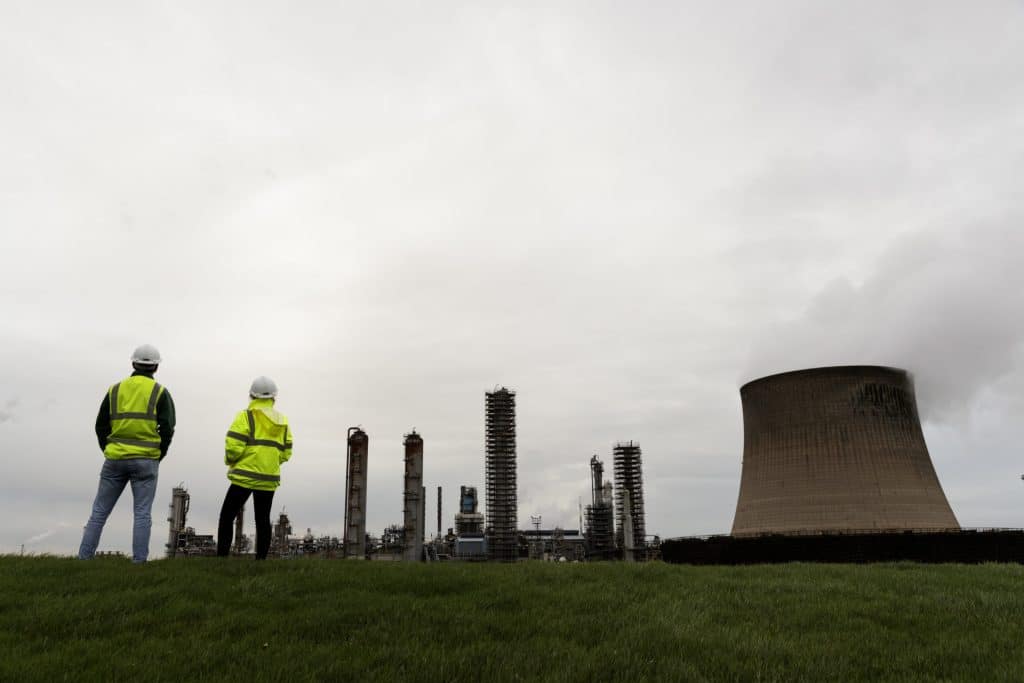Is the well running dry for African hydropower?

The impact of climate change and the rise of cheap solar could trigger a loss of power for what was traditionally a staple of Africa’s energy infrastructure
Hydropower has traditionally been one of Africa’s most important sources of electricity, but this is expected to rapidly fade as this form of renewable energy cedes its position to solar power, a recent study suggests.
Water may be an abundant resource across much – if not all – of the continent; solar, too, is plentiful in Africa, so it must seem unlikely that the one may displace the other. Surely the two can co-exist as pillars of clean, green energy?
Water falls from favour?
Abundant rainfall, massive gorges, enormous waterfalls: the geography of Africa has all the elements for producing electricity from river flow.
For decades, many African countries have relied on hydropower for electricity generation, including projects that inspire as much awe as controversy.
Think of Ghana’s Lake Volta, the largest artificial lake in the world; the Grand Ethiopian Renaissance Dam, Ethiopia’s flagship project to provide millions of its citizens with electricity access; or Democratic Republic of Congo’s dream of building the Grand Inga plant, which some claim could “light up all of Africa”.
And the voices that advocate for more of the same are strong: it is estimated that Africa has barely exploited 10% of its hydropower potential.
Yet doubts exist, and arguments are made that hydropower’s future is less than sunny. If so, is it a smart idea to plan hundreds of new hydro dams across Africa?
A new study from scientists in Italy, Austria, Ethiopia, and Belgium shows that this may not be the case.
New model energy
The study, published in the journal Science, used a detailed energy model to investigate which combination of power sources would be most cost-effective for African countries to meet their rising demand until 2050 – comparing hydropower to solar, wind, coal, natural gas, nuclear, and others.
With unprecedented detail, the study individually considered every possible future hydropower plant in Africa – with its own storage size, river flow profile, and interplay with other hydropower dams.
Dr Angelo Carlino was the lead author of the study.
“What is unique about our study is that we model every single hydropower plant in Africa individually – both existing ones and future candidates,” he said. “This way, our model can pinpoint which plants could be a smart investment and which ones should probably not be built.”
Adding up all the numbers is said to provide a sobering picture of the future of hydropower in Africa. The study found that up to 67% of possible future hydropower plants on the continent may not be worth the investment.
This is mainly because hydropower will soon largely become unable to compete economically with solar and (to a lesser extent) wind power, whose costs have dropped at unprecedented rates in the last decade.
In addition, the effects of prolonged droughts on hydropower, likely to worsen due to climate change, would have to be mitigated through additional investments.
Rising sun
Dr. Matthias Wildemeersch, a research scholar at the International Institute for Applied Systems Analysis (IIASA) in Austria, and co-author of the study, said: “This is another reason why solar power will emerge as the more attractive technology in the long term.”
Does this mean that it is ‘game over’ for hydropower?
Not entirely, apparently, as the study explains: In the short-term, some new hydropower plants could still provide cheap power for countries in need, and they could also be used flexibly to help the integration of solar and wind, whose output constantly fluctuates.
Professor Andrea Castelletti, professor in natural resources management at Politecnico di Milano, and senior author of the study, said: “Our model shows which specific hydropower plants would still be cost-effective in the short-term.
“Especially in the Congo, Niger, and Nile basins, there are certain projects that would be worth the effort, as long as they are well-planned and harmful environmental effects are kept to a minimum.”
But in the long-term, the study concludes, solar power would emerge as crystal-clear technology to be favoured by most African countries, echoing the International Energy Agency’s 2020 claim that solar power would soon become the new “king” of electricity markets worldwide.
Professor Sebastian Sterl, professor in energy meteorology at the Vrije Universiteit Brussel (VUB), Belgium, and senior scientist at the World Resources Institute (WRI) in Addis Ababa, Ethiopia, said: “The window for hydropower in Africa to be a feasible investment is very rapidly closing.”
The study suggests that beyond 2030, only a very limited number of hydropower plants would remain attractive investments across Africa.
“Aside from cost-effectiveness, this is generally good news for the environment,” Sterl added. “It means that many rivers won’t have to be dammed and can keep their natural course.”
Main image: Kariba Dam, Zambezi River. Credit: DAFNE Project, Politecnico di Milano, ATEC-3D
Read next: Sellafield digs deep into waste storage history
Are you a building professional? Sign up for a FREE MEMBERSHIP to upload news stories, post job vacancies, and connect with colleagues on our secure social feed.




Responses